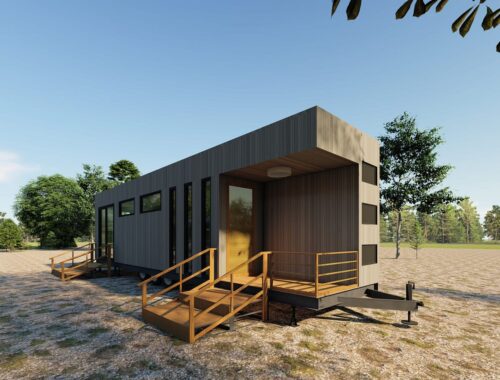The Public-Land Bills We Can All Agree On
>
It would seem Republicans and Democrats are wholly divided on public land policy. During the 2016 campaign, the GOP platform called on Congress to “immediately pass universal legislation” to “convey certain federally controlled public lands to states,” while Democrats sought “policies and investments that will keep America’s public lands public” by prioritizing access and environmental safeguards.
But, believe it or not, some consensus exists. A pair of bills introduced this year—including one that would make it easier to transfer federal land to states—shows that Republicans and Democrats can actually agree on certain aspects of public land management.
The land transfer bill, dubbed the Advancing Conservation and Education Act, was introduced on November 6 in the House by Chris Stewart, a Utah Republican, and Jared Polis, a Colorado Democrat. An identical measure in the Senate is backed by Democrat Martin Heinrich of New Mexico and Arizona Republican Jeff Flake. The bill would allow western states to ask the Department of the Interior to swap state-held trust lands surrounded by federal conservation plots for federal parcels that are easier to develop.
Here’s the issue: Western land is divvied up into a grid of state, tribal, federal, and private ownership. Occasionally state trust lands, which are designated to generate revenue for public schools, are surrounded by national parks, national monuments, or wilderness areas. Consider Arizona’s Petrified Forest National Park. Peppered throughout the park is trust land deeded to Arizona for the purpose of generating money for schools. Arizona has the legal authority to lease those parcels, but running cattle or setting up a pump jack on a 160-acre plot surrounded by stringent national park regulations would be impractical for any rancher or driller. It’s a lose-lose for the state and the feds: Arizona is unable to tap into those dollars, and the national park lacks consistent management within its borders.
“Exchange authority is needed to allow for land tenure adjustments and consolidation of remote state trust parcels in return for lands near urban areas,” the Sonoran Institute wrote in a 2011 report examining Arizona’s trust lands. “This will also allow for the preservation and protection of lands with significant conservation value.”
That authority is precisely what legislators are shooting for with this new bill. “It makes management of federal land more efficient, while providing additional revenue for state land trusts and schools,” Flake said in a statement. “These are two worthwhile goals that when combined represent a genuine opportunity for those in the West.”
Many observers consider the legislation a win-win. Conservation groups like the Wilderness Society and the Wildlife Society have endorsed it, as has the Western States Land Commissioners Association. “Through this bill, our public lands will be better protected and school kids will come out ahead,” Wilderness Society policy director Paul Spitler said in a statement.
In practice, the ACE Act would shore up fragmented management in the West. Take the Petrified Forest example: an ACE-enabled swap would permanently preserve the entirety of the park by transferring ownership of state parcels to the National Park Service. Meanwhile, Arizona could receive current Bureau of Land Management or Forest Service land that is closer to current grazing or mining allotments, thus clustering commercial use in a more efficient fashion.
While the ACE Act seeks to thread the conservation and extraction needle, a second bipartisan bill has a singular goal—streamlining recreational access on public lands. Dubbed the Recreation Not Red-Tape Act, the bill, introduced in July by Democratic Senator Ron Wyden and Republican Representative Rob Bishop (yes, “public-lands enemy number one” Rob Bishop), would promote outdoor recreation on numerous fronts. The bill instructs the BLM and the U.S. Forest Service to offer a joint permitting process, and tells the feds to team up with states to offer recreation passes that cover both federal and state properties.
Furthermore, the bill instructs the BLM and U.S. Forest Service to prioritize recreation by improving facilities in areas where recreation occurs only seasonally (think establishing ski-touring huts along trails popular only in the summer), and it would require other agencies such as the Army Corps of Engineers and the Federal Energy Regulatory Commission to consider how their decisions affect recreation opportunities. American Whitewater, the International Mountain Biking Association, the Outdoor Industry Association, Backcountry Hunters and Anglers, and numerous other outdoor organizations support the act.
Given the diverse coalition of supporters for both bills, one would think they’d be fast-tracked for passage. But such bipartisan success has been near-impossible in recent years. Versions of both bills have surfaced in previous Congresses—the ACE land-transfer act first popped up in 2014, when it was introduced in the House by Bishop and Oregon Democrat Peter DeFazio. It re-emerged in 2016 in both the House and Senate. Neither version received a vote. The same fate met Wyden’s recreation bill when he first introduced it 2016.
So there’s agreement to be had on public land management. Whether agreement can become law in this polarized Congress is another question altogether.
How to Own a Husky in the City
You May Also Like

The Future of Fashion: How Artificial Intelligence is Revolutionizing the Industry
February 28, 2025
ユニットハウスのメリットとデメリットを徹底解説
March 21, 2025